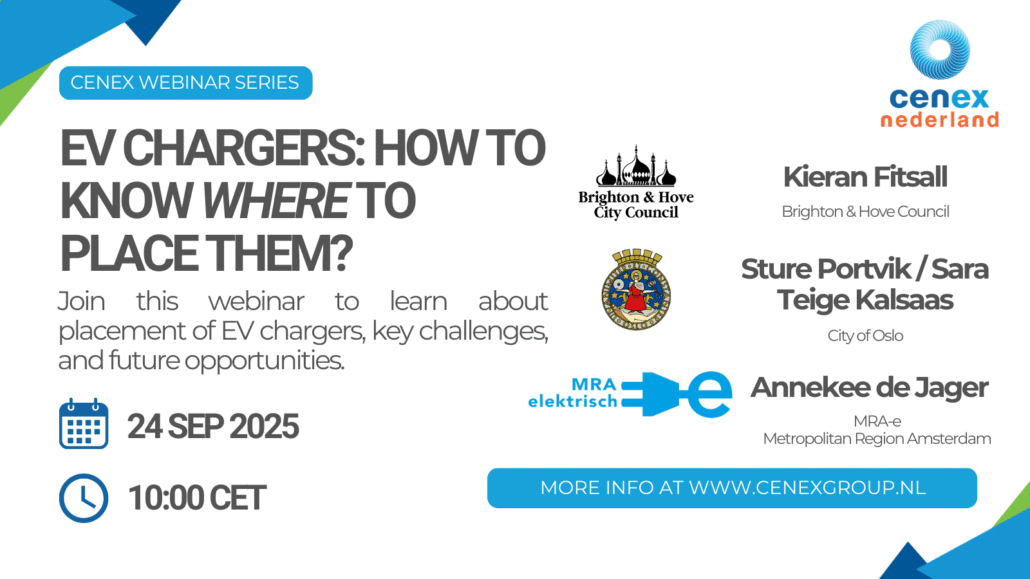Cenex Nederland, in collaboration with Cenex UK and the Institut Luxembourgeois de Régulation (ILR), has completed a major study on the contribution of electric vehicle (EV) chargepoints to the flexibility of Luxembourg’s electricity system.
As the number of EVs grows rapidly across Europe, the opportunity for vehicles to support the energy transition becomes increasingly significant. This study explores how smart charging and vehicle-to-grid (V2G) technologies can enhance grid stability, reduce energy system costs, and enable more renewable energy generation.
EVs as Active Energy Assets
EV batteries are mobile energy storage units. When plugged in, they can:
- Shift charging to periods of low demand or high renewable generation
- Discharge energy back to the grid when needed (V2G)
- Provide valuable balancing services such as Frequency Containment Reserve (FCR) and Automatic Frequency Restoration Reserve (aFRR)
By participating in these flexibility services, EVs can move beyond mobility and become part of a smarter, cleaner energy ecosystem.
Key Findings from the Study
🔹 Reduced system costs through price-responsive charging and grid services
🔹 Greater renewable energy absorption, avoiding curtailment of wind and solar
🔹 Deferral of network reinforcement investments, thanks to load shifting
🔹 V2G delivers strong added value compared with smart charging alone
→ With potential payback between 1 to 4 years
These benefits grow significantly toward 2030 as EV adoption and charging infrastructure scale up.
Guidance for Policy and Deployment
To unlock the full flexibility potential, the study recommends:
- Incentivising more frequent plug-in behaviour
- Continued support for V2G-capable technology and interoperability standards
- Aligning energy market structures to enable EV participation
- Implementing optimisation strategies that balance network constraints with pricing signals
A European Collaboratio
Cenex Nederland is proud to bring Dutch expertise in smart charging innovation to a project that showcases how European partners can learn from one another as we move toward a net-zero future. Lessons gained from Luxembourg’s system can inform future flexibility strategies across the EU.
📄 Download the full report
Contribution of Electric Vehicle Chargepoints to the Flexibility of the Luxembourgish Energy System and the Absorption of Renewable Energy





